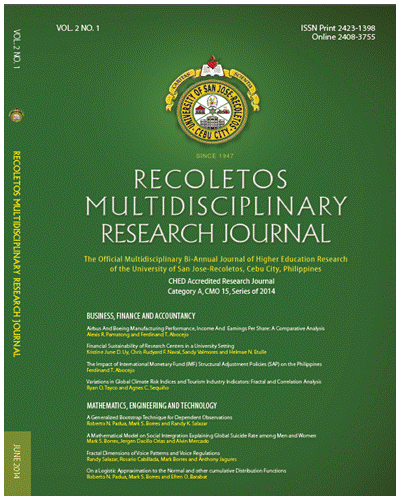A Generalized Bootstrap Technique for Dependent Observations
DOI:
https://doi.org/10.32871/rmrj1402.01.05Keywords:
bootstrap, dependent observations, subspace, Cholesky’s method, LU-DecompositionAbstract
The bootstrap method for re-sampling essentially obtains the re-sampled observations from the empirical distribution function of the original data. The method relies heavily on the assumption of independence of the observations (iid). When the original data are correlated, then the usual bootstrap technique may fail to give appropriate re-sampled data. The present study proposes a new method for generating bootstrap observations from dependent observations knowing the original correlation structure of the data. Independent and identically distributed initial bootstrap samples are obtained from the
empirical cumulative distribution function of the data. The bootstrap re-samples from the original data are obtained from the space generated by the initial bootstrap subsamples. It is shown that the correlation structure of the bootstrap samples obtained is the same as the original data. Simulations show that the relative error and the mean-squared error decrease with increasing sample size. However, both types of error increase with increasing dimensionality of a multivariate normal distribution.
References
Kolman, Bernard. Elementary Linear Algebra (New York:McGrawhill, 1998)
Johnson, D. and Wichern, W. Applied Multivariate Statistics (New York: McMillan, 1987)
Lomangaya, Wilma. Sampling from a Univariate Time Series. (Unpublished Doctoral Dissertation, 2010, University of Rizal System)
Downloads
Published
How to Cite
Issue
Section
License
Copyright of the Journal belongs to the University of San Jose-Recoletos


